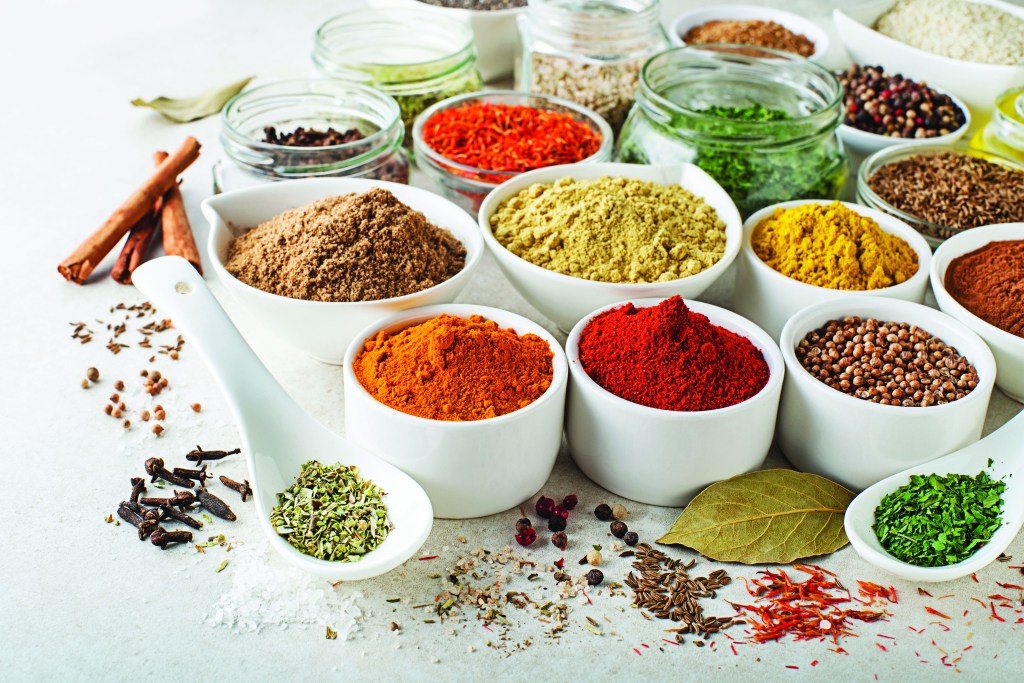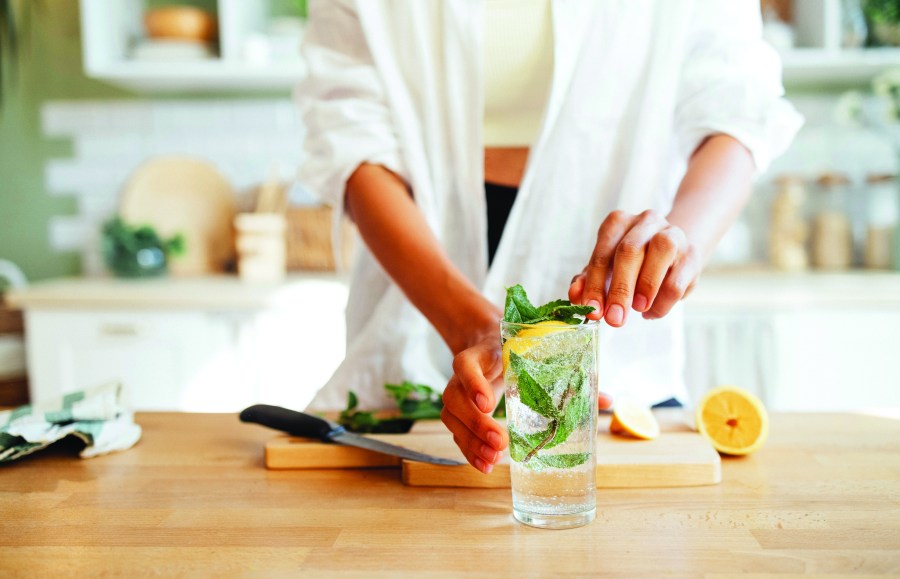With fruit and veggies in abundance, it’s easy to pack in the nutrition during the warmer months! Here are registered dietitian Lola Biggs’ top ways to fine-tune your summer diet
Eat the rainbow
Eating a variety of brightly coloured fruit and veggies every day means that you get all those essential nutrients. Red foods such as strawberries, red peppers, tomatoes, beetroots and cherries all contain lycopene, which can improve heart health and increase brain function. Greens such as avocados, kale, spinach, broccoli and kiwis are full of antioxidants, potassium, vitamin K and fibre, while yellow and orange fruits and veggies are packed with carotenoids. Eating oranges, squash and pumpkin, carrots, sweet potatoes, mangos and pineapples can boost the immune system, improve vision and reduce inflammation.
Stay hydrated
In the summer heat, you lose more water through sweating, so it’s crucial to stay hydrated. Aim for eight glasses of water a day. To make it more interesting, try infusing it with mint, cucumber or slices of citrus fruits to boost flavour. Ditch the sugary drinks and sip on coconut water instead as it helps rehydrate and replenish electrolytes.
Get grilling

The healthier way to cook, and perfect for summer barbecue season, grilled foods often retain nutrients more than other cooking methods. Create quick, easy, tasty and healthy filling salads and Buddha bowls using lightly grilled peppers, courgettes, broccoli and asparagus. Add some protein-rich chickpeas, fish or chicken, and wholegrains such as brown rice or quinoa. Finish off with some healthy fats such as avocado, seeds and tahini.
Eat from smaller plates
Serving food on a smaller plate tricks your brain into thinking the portion looks bigger, so you are less likely to overeat. To ensure a healthy, balanced summer diet, aim to fill half your plate with vegetables, then 25 per cent carbs and 25 per cent protein.
Sneaky veg
It can be tricky to get some kids and picky eaters to eat enough veg (and this can impact on your diet, too). One of the easiest ways to incorporate more into a daily diet is to blend them into a vitamin-packed pasta sauce. You can also add shredded veggies into a delicious, wholesome frittata, sneak extras into soups and casseroles, and even disguise carrot, beetroot or courgettes in desserts.
When life gives you lemons
Rich in vitamin C – an essential antioxidant that supports your immune system, enhances digestion, helps your body absorb iron from plant-based foods and improves nutrient absorption – adding a squeeze of lemon juice to your meals ensures you get a healthy dose of this vital nutrient and supports overall health.
Go nuts
Loaded with vitamin E and heart-healthy unsaturated fats, sprinkling just a handful of nuts onto your morning porridge or yogurt pot can make a big difference to your health. Walnuts are a great source of omega-3 oils, folic acid, vitamin C and E, and can support a healthy immune system. Brazils are a fantastic source of protein and contain a high amount of the mineral selenium, which helps to reduce inflammation and protect the body from oxidative damage. Creamy cashew nuts are rich in iron, zinc and essential amino acid tryptophan, which plays an important role in producing serotonin, also known as the happy hormone. Empty some nuts into a jar and keep on your kitchen worktop to remind you to scatter and snack.
The best fitness foods for marathon nutrition
Spice up your life

Adding spices and herbs to your summer diet helps with a range of health benefits – it can support the body’s defences, reduce inflammation, lower your blood pressure and reduce the risk of heart disease and stroke. Sage, cinnamon, cayenne pepper and ginger are all fantastic, but anti-inflammatory curcumin is one of my favourites as its fantastic for helping to fight oxidative damage. Together Health’s Curcumin Complex with Whole Turmeric Root (£9.99, togetherhealth.co.uk) gives a great energy boost and can combat joint pain and inflammation.
Eat to beat jet-lag
What we eat can impact how jet-lagged we end up. Giving into cravings for processed fast foods and sugary, salty snacks isn’t a good idea on a flight. Foods high in salt can cause the body to hold onto water leading to bloating. Bananas are full of magnesium, potassium to regulate blood sugar and ease muscle cramps, natural sugars and essential amino acid tryptophan. Eating these can give you energy.
Frozen fruits are your friends
Frozen summer berries can be just as nutritious as fresh, and have a longer shelf life. Perfect for smoothies, they are also great for making your own healthy sweet treats. Blitz up frozen bananas slices with Greek natural yoghurt and honey, and freeze to make your own ice cream. Blend berries, mango and watermelon with a dash of lemon or lime juice and freeze to make your own refreshing low-calorie fruit sorbet.
Lola Biggs is a registered dietitian at natural health supplement brand Together Health (togetherhealth.co.uk). She believes that eating a healthy and varied diet doesn’t have to be costly or difficult.








